Anthony Albanese’s smooth sailing government faces challenging 12-months to keep the ship steady
Anthony Albanese’s long-term plan to keep Labor in power and entrench ALP policies will be challenged by serious economic, security and social headwinds.
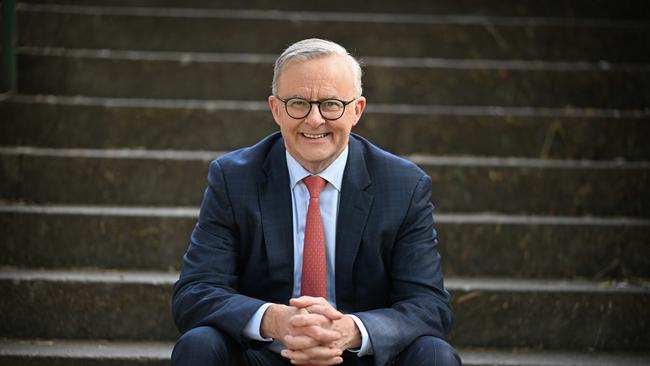
For a man the Coalition fatally believed was unelectable, Anthony Albanese has more than proved the doubters wrong – on both sides of politics.
On Sunday the reconstructed left-wing Labor leader marks his one-year anniversary as Prime Minister, a job the tribal warrior never sought until late in the piece as he forged an unplanned path to the top through the factional melee of the NSW Labor Party.
But 12 months on from Labor’s May 2022 election win, the 60-year-old inner-west Sydney native has made a convincing and seemingly purposeful transition to the Lodge, appearing more than just comfortable in the role. Some say too relaxed at times.
It’s good to be the king.
The ALP primary vote is four points ahead of its historically low but winning election result, with Labor’s improved electoral dominance so far unchallenged, and confirmed after claiming victory in last month’s Aston by-election – becoming the first government to snatch an opposition seat since the 1920s.
Albanese’s personal approval ratings also remain strong, underwriting a universal belief within the caucus that his leadership is assured for the balance of this term and beyond.
But if the first year of government was about fulfilling Labor’s election agenda, bedding down the systems of government and ensuring political stability, the year ahead is looking decidedly more dangerous for Albanese as he undoubtedly eyes a potential early election late next year.
Economic conditions are conspiring against the government amid global and regional insecurity, domestic pressures and a growing sense of pessimism in the community with a budget that fell short of expectations that middle Australia would be endowed with cost-of-living relief. Albanese’s centrepiece social policy – a constitutionally enshrined Indigenous voice to parliament – also is beginning to look shaky.
With Labor’s ambitions tied to the dogmatic pursuit of expanding its social and economic agenda, political reality soon may clash with hubris and test the tolerance of an electorate wary of change amid uncertainty.
Jim Chalmers’ admission that budget constraints were preventing Labor from reshaping the economy and society as much as it would like is a giveaway as to what Albanese may seek to do with his significant political capital.
The Prime Minister tells Inquirer that a sense of purpose and his enforcement of a traditional cabinet structure has underpinned the government’s first-year success.
While this is a veiled reference to what he calls the chaos of the Morrison government, it equally applies to Labor’s last term in office under Kevin Rudd and Julia Gillard.
“The government has a sense of purpose,” Albanese says. “We have dealt with immediate challenges while building a better future long term. We are operating a proper cabinet government, which takes advantage of the talent and capacity across our team.”
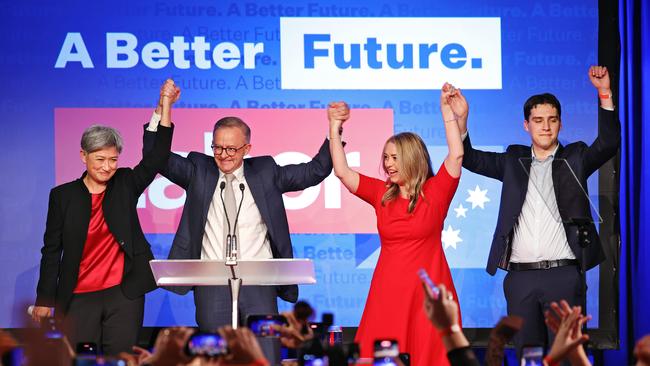
But events could begin to alter the equation for the Albanese government.
Cost-of-living anxiety, rising interest rates, higher unemployment and a rapidly slowing economy will dominate the political debate across the coming 12-months. Policy adventurism beyond the core business of government is laden with risk.
In celebrating his first year in government, even conservative thinkers accept that at a macro level Albanese has done exceptionally well.
There is a caveat. While Albanese is unquestionably winning the politics, Liberal Party strategists believe the jury is out on policy. A more detailed direction remains unclear.
Yet there is an emerging default position skewed to the left on major policy outcomes – presenting potential fertile ground for Peter Dutton, who has identified the new “working poor” as the emerging political battlefield.
Whether it is the Treasurer’s budget for the Labor base, industrial relations reform or more ambitious climate change targets, Albanese has been uncompromising, in the knowledge that at the moment he can get away with it.
Labor’s dominance federally, while assisted by the combination of electoral goodwill, clean governing and acute structural and electoral decline within the Liberal Party, is built around the cult of Albo.
His approval rating at 57 per cent is significantly higher than support for the party. It is also higher than the two-party-preferred vote of 55 per cent. This is critical to understanding the ease and confidence that Albanese exudes as leader and lends weight to the view that people like the Prime Minister more than they like Labor.
Those within Labor who believed Albanese had reached the limits of his ambition and ability as opposition leader have been forced to revisit their assessments of a man now considered one of Australia’s shrewdest politicians.
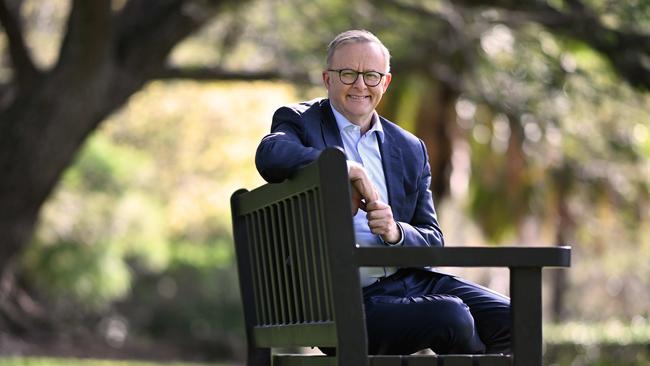
Joel Fitzgibbon – who entered parliament with Albanese in 1996 after rising through the ranks together as emerging stars of the NSW Right and Left – first met him in 1985. In his valedictory speech last year, the former Hunter MP recalled their first encounter.
“I’d been recruited to the annual conference at the Balmain Town Hall by right-wing apparatchiks hoping to wrestle control of NSW Young Labor from the Left. That was the first time I saw this young firebrand they called Albo, who was completely dominating the conference with his fiery contributions to the debate,” Fitzgibbon told parliament.
“Alas, the Right didn’t win the ballot.”
Fitzgibbon – who pushed Albanese to shift Labor to the centre on climate change, resources and gas – tells Inquirer that his former sparring partner has “positively surprised everyone”.
“Anthony Albanese has surprised all those who didn’t know him well and therefore underestimated him. He’s governed from the centre where the majority of Australians sit. He’s been calm, confident and reassuring,” Fitzgibbon says.
Veteran Labor strategist Bruce Hawker says Albanese has taken to the job like a duck to water: “I think his first 12 months have been extremely successful, in part because they are a mature government who learnt the internal lessons of the past and are determined not to repeat the mistakes.
“It certainly helps when you have an opposition not doing any favours to itself or the people who once supported it.
“I believe the split in the Liberals is akin to the split in the Labor Party and the DLP in the ’50s, when suddenly half your base walks aways from you. Unless you come to terms with it, it is fatal. Labor was out of government federally for 23 years.”
Since the election Albanese has travelled to Britain and Indonesia twice, Spain, Ukraine, France, Japan, India, Thailand, Papua New Guinea, the US, Cambodia, Fiji and United Arab Emirates. He will attend the G7 summit in Hiroshima over the weekend. Between June and November, he is due to visit Singapore, Lithuania, India, Indonesia, the US and Cook Islands.
A trip to China is on the cards around late October or early November, with Beijing expected to continue easing trade sanctions on Australian products in coming months.
The visit, coinciding with the 50th anniversary of the historic trip to China by Gough Whitlam when prime minister, will likely hinge on progressing the release of Australian journalist Cheng Lei and writer Yang Hengjun.
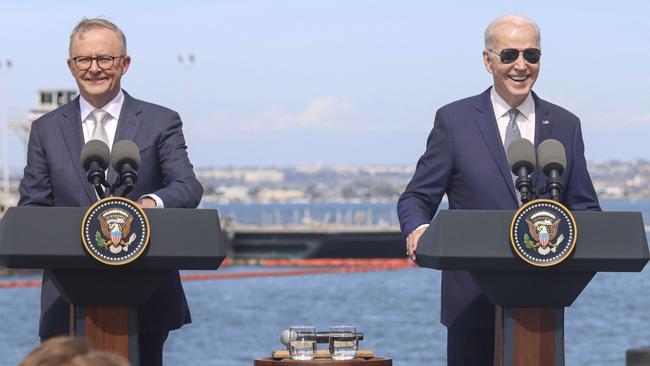
A former Labor cabinet minister says Albanese’s performances on the international stage have exceeded expectations: “He’s held himself very well.”
The senior ALP figure says Albanese has “benefited enormously from low expectations”.
“That’s not a criticism, that’s just the way the world works. He is clearly governing from the centre and has instilled discipline within the ranks, and he’s benefited from that. Whether that lasts … that’s another matter,” the former minister says.
Hawker warns of a “sleeper issue” that could intervene to disrupt and profoundly challenge the current domestic political landscape.
“The real impact of the changes we see in America and China will start to be felt in a very significant way in the Australian public over the next 12 months, in terms of increased anxiety and concern in Australia about where this is going and where does Australia stand in it all,” he says.
“We haven’t been faced with a national security threat of this scale in 80 years and it’s now been actively discussed in Washington.
“This is something the public will hear a lot more about over the next 12 months and I don’t know how that’s going to play out. It will require a huge level of maturity … from both sides … and I think that is happening at the highest levels.”
A long-time friend of Albanese tells Inquirer that “overall, he’d be pretty happy”.
“They expected the cost-of-living crisis to get worse. Despite what is a clearly challenging time, the people are still kindly disposed to him. They don’t see him as a bullshitter like his predecessor. He’s just getting on with it. That doesn’t mean he doesn’t have big challenges ahead with the economy,” he says.
“The plan for term one was to do what he said he was going to do and restore what he saw as damaged public sentiment towards government. The one thing he’s taking a chance on is the voice, but there hasn’t been anything out of left field. He is staying out of the news and not trying to control the agenda all the time.”
The Albanese loyalist says, behind the scenes, the Prime Minister and his inner sanctum are thinking: “What does a second term look like?”
“There’s some criticism about being risk averse and not doing enough. But towards the end of the term they’ll start arguing more clearly about putting a Labor stamp on government.”
Conscious of the short-lived terms of the Whitlam, Rudd and Gillard governments, Albanese is determined that Labor “occupy the cultural and political landscape for at least a decade”. He is desperate to avoid an incoming Coalition government dismantling ALP policies as Malcolm Fraser and Tony Abbott did.
Labor insiders say the plan for Albanese is to remain in place for two terms: “As time goes on, you’ll see more of a reformist Labor agenda if they win subsequent terms. They are determined to ensure their policies can’t be reversed.” The voice referendum and changes to super tax concessions are two examples of a future-proofing principle written into parts of Labor’s legislative agenda.
Albanese’s inner sanctum is littered with Sydney Labor Left figures, lifelong friends and university mates.
Many of them found jobs in the Prime Minister’s office, including chief-of-staff Tim Gartrell, Daniel Barbar, Alex Bukarica (godfather to Albanese’s son Nathan), Jenny Mason, Alex Sanchez and Mal Larsen.
Outside the old-guard loyalists are Jeff Singleton and Moksha Watts, who have worked for Albanese across many years.
“He has two levels of people around him. But there’s only a small number of people with whom he is really close,” a long-time associate says.
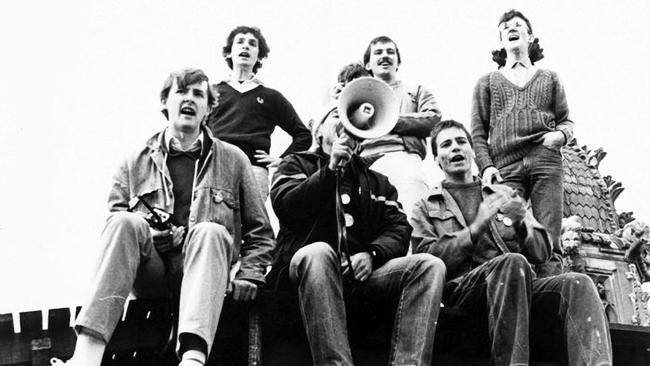
Beyond the PMO, Albanese seeks counsel from Inner West Council Mayor, friend and former staffer Darcy Byrne, and Left faction allies and powerbrokers Katy Gallagher, Tim Ayres, Mark Butler, Penny Wong, Jenny McAllister, Murray Watt and Pat Conroy.
Right Faction “godfather” Don Farrell, Deputy Prime Minister Richard Marles, Tony Burke and Chalmers are important influencers and decision-makers around the cabinet table.
When Wong went down with Covid-19 and missed a key legislative week in the Senate this year, Farrell secured deals, including on the voice referendum machinery bill. Albanese listens intently when Farrell speaks.
“Don is the controller of the Right,” an insider says. “But they actually share similar opinions on keeping the ship steady and not exceeding promises.
“Katy Gallagher is another important figure, particularly in that economic sphere. There’s nothing unfriendly about Albanese’s relationship with Chalmers but that dynamic will become similar to Hawke and Keating.
“They represent the old and new generations.”
The 2022 election victory also elevated ALP national secretary Paul Erickson – the Left Faction, baby-faced, backroom mastermind – to a special position in Albanese’s inner sanctum. Erickson, who orchestrated Labor’s historic Aston by-election win, joins Albanese’s Leaders’ Group strategy meetings ahead of parliamentary sitting weeks.
However, it hasn’t been all smooth sailing for the government. It tripped up over superannuation and tax policies after kite-flying exercises that dragged on for too long.
Under pressure from unions and the Greens – who despite noisy rhetoric have rubber-stamped Albanese’s legislative agenda – some Labor MPs are not sold on the stage three tax cuts and a modest $40-a-fortnight rise in JobSeeker payments.
Despite internal pushback, Albanese so far has held the line on the tax cuts, banked the bulk of record revenue windfalls, delivered the first surplus in 15 years and resisted the urge to spend big on social policies. Adopting a centrist approach was a key pledge made by Albanese to big business. His success in wooing corporate Australia ahead of the election was seen as cynical by some but cunningly brilliant by others.
He was helped by several factors. Following the disastrous 2019 election defeat, chief executives were attracted to Albanese’s guarantee that he would embark on renewal rather than revolution.
The Labor leader pledged to soothe tensions with China and promised greater climate change ambition. Corporate bosses, who were spooked by Bill Shorten, began viewing an Albanese government as a credible alternative to the Coalition, which had grown stale after almost 10 years in power. Another key dynamic was the corporate relationships Albanese had built up across a quarter of a century.
“He brought that longstanding experience,” a member of Albanese’s inner sanctum tells Inquirer. “He’s got relationships with people like Alan Joyce, Jennifer Westacott, Nicholas Moore, Lindsay Fox, Rod Eddington.
“He took very significant business delegations to Indonesia and India, inviting them to be part of the strategy to deepen economic relationships.
“He told them before the election that the government’s door would always be open to business. And while business is not going to get everything they want, they’ll get a hearing.”
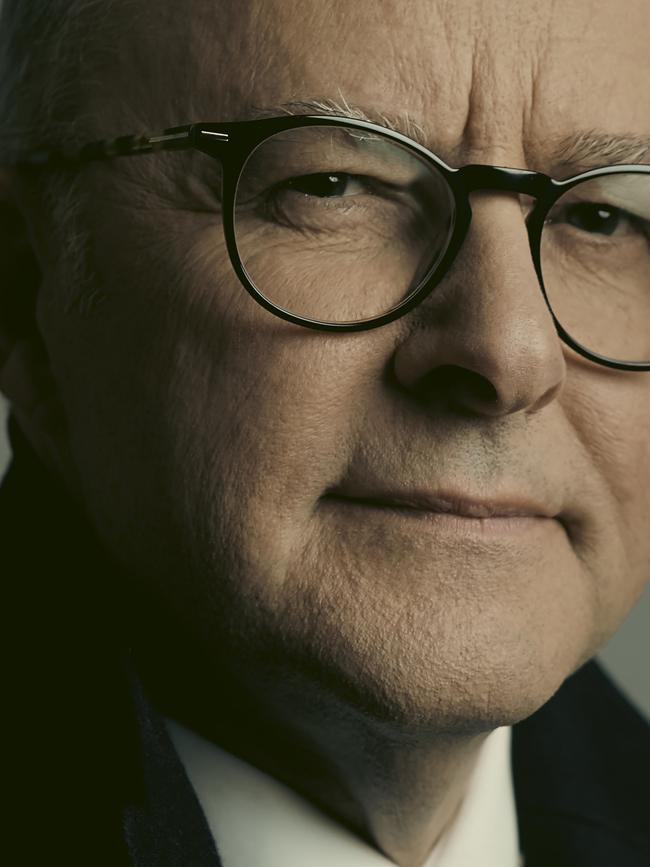
By the end of last year, some leading business figures had begun to question their judgment when it became apparent that Albanese’s renewal was looking more like quiet revolution.
Shortly after hosting the Jobs and Skills Summit with unions and employers in September, the government swiftly implemented controversial industrial relations reforms, a sweeping energy market intervention imposing gas and coal price caps and tough new climate targets on heavy industry.
Business fears the worst is yet to come, with major IR and environmental approvals shake-ups looming in the second half of the year.
Senior mining, oil and gas executives have told Inquirer they no longer “trust the government”. Minerals Council of Australia chief executive Tania Constable says Albanese had “started strongly by stabilising international relations and building partnerships with like-minded countries, moves that are already paying dividends”.
“There are worrying signs that economic growth is not being prioritised, and in fact is being undermined by cumulative policy decisions that together will act as a weight on the economy,” Constable tells Inquirer.
“It’s important the Prime Minister pushes back on destructive industrial relations and taxation policies that will deter investment and inhibit economic growth and wages.”
Fading goodwill from corporate Australia, rising anxiety in middle Australia, a global recession and US-China tensions are significant danger points for Albanese.
Will the electorate stick with Labor in the political battles Albanese inevitably will have to fight?
As successful as his first year in office has been, there are perils ahead.
These will not only test the political foundations Albanese has constructed internally but challenge the relationship he has built with the electorate.

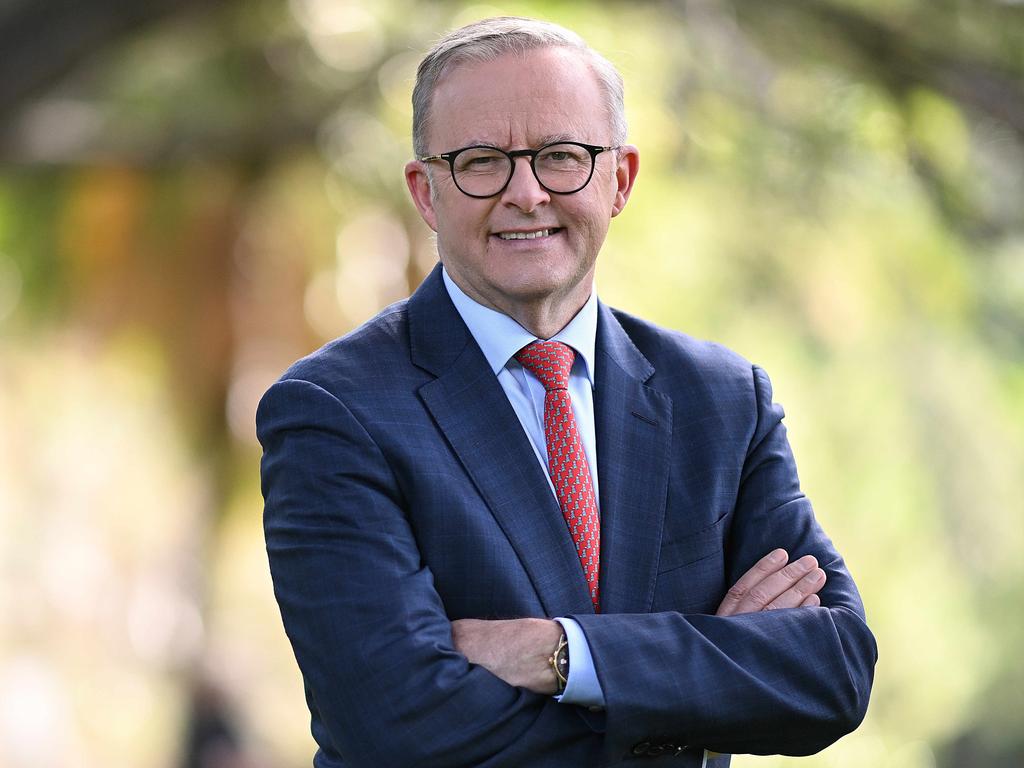
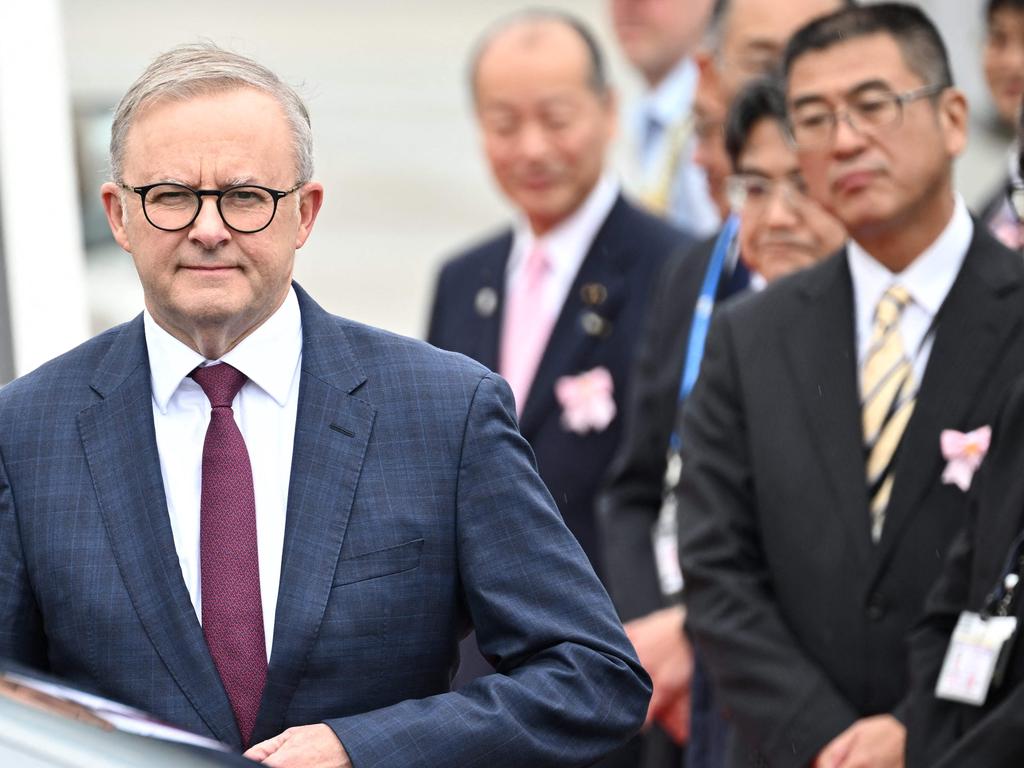
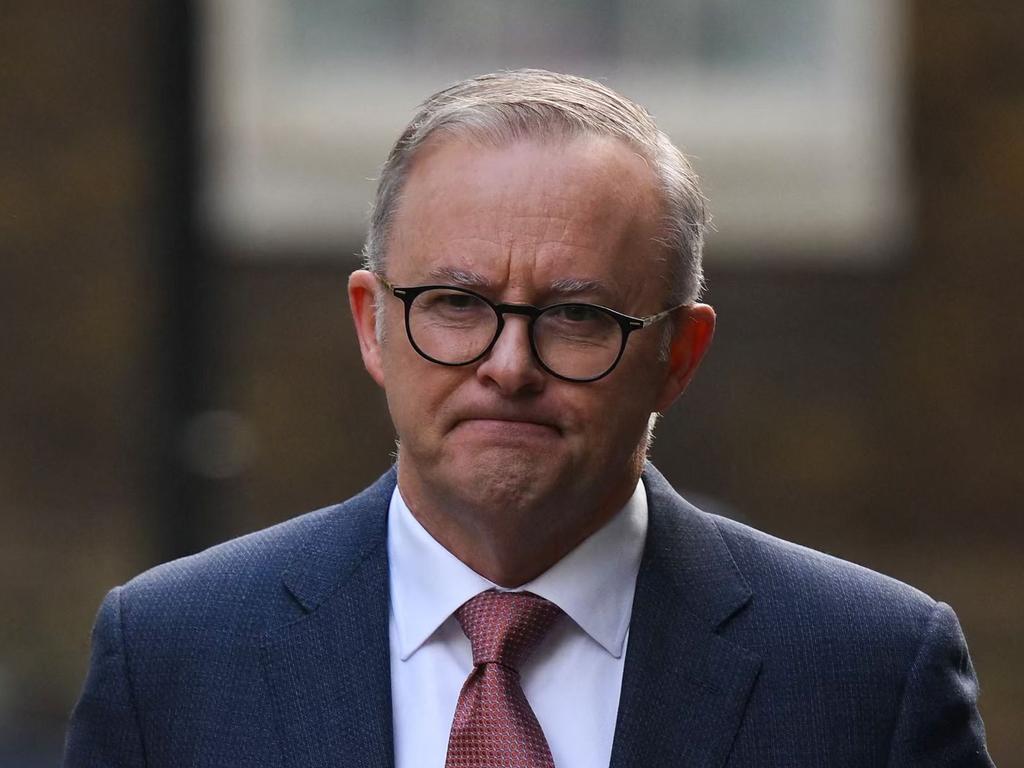

To join the conversation, please log in. Don't have an account? Register
Join the conversation, you are commenting as Logout